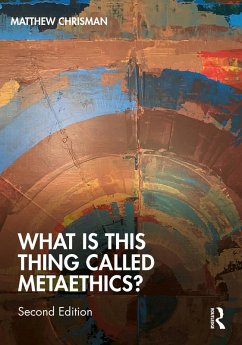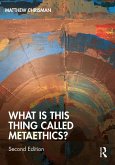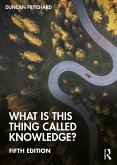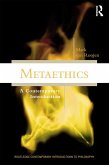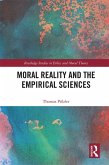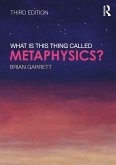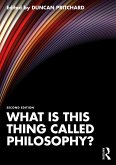What is this thing called Metaethics? demystifies this important subject and is ideal for students coming to it for the first time. Beginning with a brief overview of metaethics and the development of a "conceptual toolkit," Matthew Chrisman introduces and assesses the following key topics:
- ethical reality: including questions about naturalism and non-naturalism, moral facts, and the distinction between realism and antirealism
- ethical language: does language represent reality? What mental states are expressed by moral statements?
- moral psychology: the theory of motivation and the connection between moral judgement and motivation
- moral knowledge: intuitionist and coherentist moral epistemologies, and theories of objectivity and relativism in metaethics
- prominent metaethical theories: naturalism, nonnaturalism, error-theory, and expressivism
- new directions in metaethics, including non-traditional theories, thick ethical concepts, and extensions to metaepistemology and metanormative theory
The Second Edition has been completely revised and updated throughout. This includes a new thematic organization of the core chapters, many new examples, a newly written final chapter including discussion of thick ethical concepts and all-things-considered normativity, updated references to recent scholarly literature, improved learning resources, an expanded glossary of terms, and much more.
Additional features such as chapter summaries, questions of understanding, and suggestions for further reading make What is this thing called Metaethics? an ideal introduction to metaethics.
Dieser Download kann aus rechtlichen Gründen nur mit Rechnungsadresse in A, B, BG, CY, CZ, D, DK, EW, E, FIN, F, GR, HR, H, IRL, I, LT, L, LR, M, NL, PL, P, R, S, SLO, SK ausgeliefert werden.
'This is an outstanding introductory text that combines clear, concise, and detailed coverage of all of the traditional metaethical positions, with original and distinctive treatments of new developments in metaethics, and with a fascinating discussion of how metaethical thinking relates to more broadly normative issues. It will be an excellent resource for students and their teachers alike.' - Michael Brady, University of Glasgow, UK

